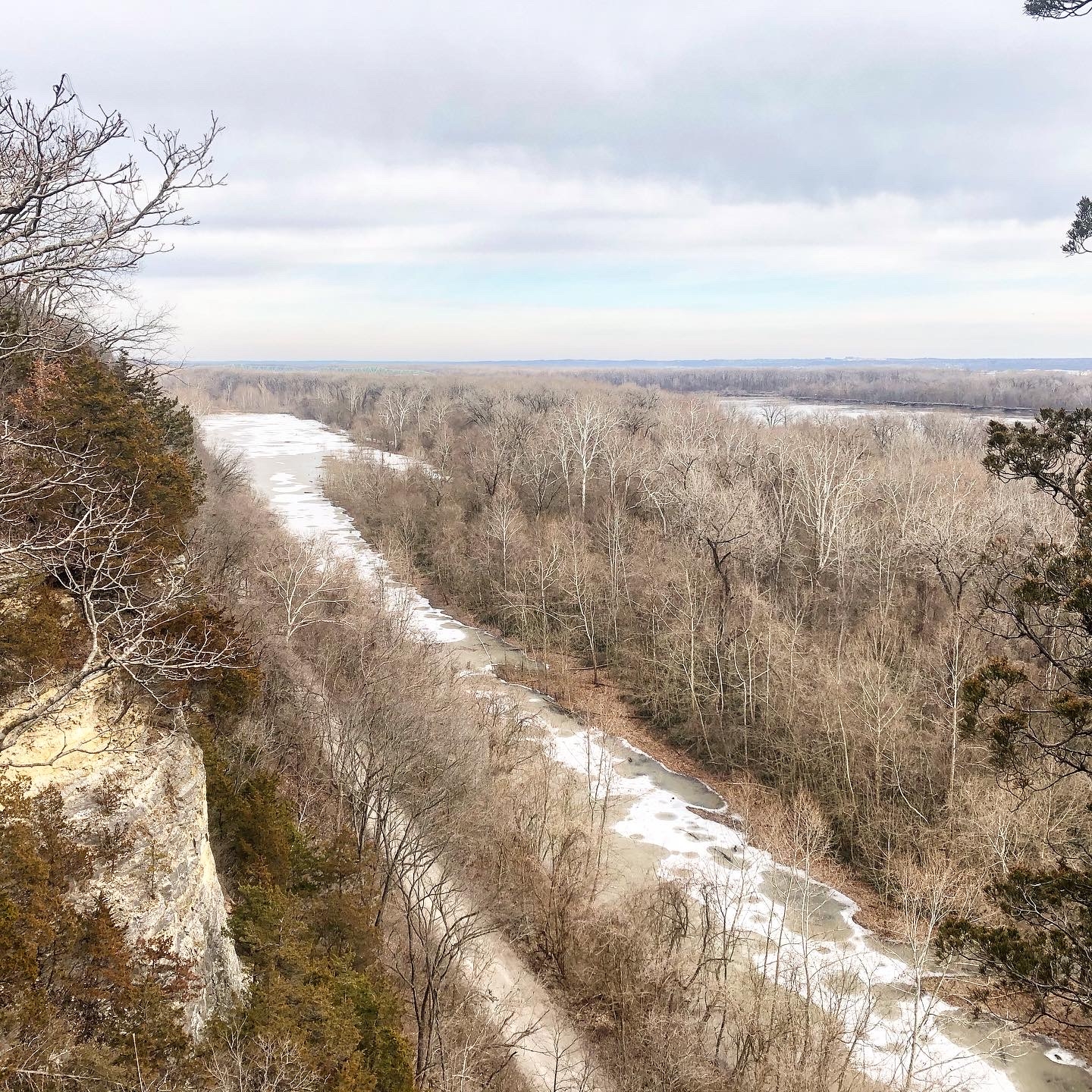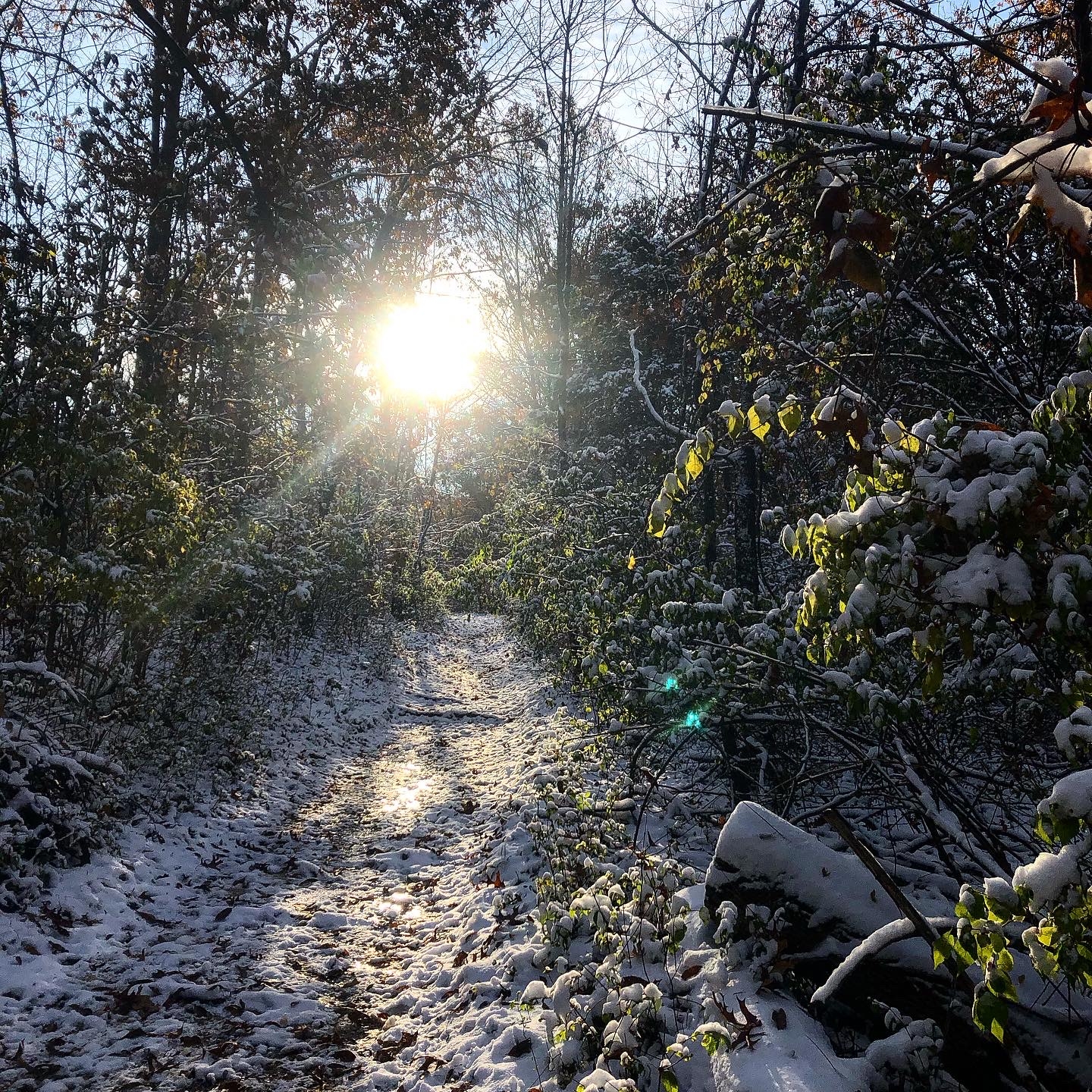Four Reasons Why Thru-Hiking Is Like Recovery
Calling all aspiring 2020 thru-hikers: Raise your hand if you’ve thought about quitting your hike a million times already. I know I’m guilty of it. If you’re like me, it’s been more like a million and one times. Yes, the doubt monsters are still playing battleship in my head and it’s only getting worse as my Appalachian Trail start date grows closer. Am I sure this is the right time? Maybe I should wait another year. I don’t feel ready. This is a stupid idea. I’m obviously way in over my head. I should just back out now.
As these thoughts come in, I try to slow things down and break apart what I’m actually feeling. It’s not a matter of not wanting to hike the AT bad enough. I’m mostly just scared and apprehensive about the massive journey I’m about to embark on. While it’s annoying to have these pre-hike nerves, I’ve come to accept they may be here to stay for the time being. Realistically, walking from Georgia to Maine is no easy feat! Therefore, it’s only natural to second-guess the plan to hike over 2,000 miles in six months.
As I continue to heavily question my decision, I can’t help but reflect on how similar this feels to pursuing recovery from my eating disorder. Here are four reasons why thru-hiking is like recovery.
It’s Going to be Hard
Even though I’m not on the Appalachian Trail yet, I can just imagine how physically taxing it will be. Hiking roughly 10 to 15 miles each day up and down mountain ranges while carrying a pack is going to be brutal on my body. Not only that; it’s going to be mentally exhausting as well. There will be days when I’ll want to give up and throw in the towel.
Recovery is the exact same way. Many times I’ve had to make myself eat dinner even though each bite feels like torture. But I do it anyway because it’s what is best for me. I push through the discomfort because I have a goal to reach. I want a better life for me. Recovery is a choice and so is thru-hiking. It’s up to me to keep going.
It’s a Work in Progress
I’ve learned so much over the past few months of training. From gear and little tips and tricks to setting up camp alone, I’ve been able to grow significantly. Have I made mistakes? Oh, hell yes. Have I learned from these mistakes? Absolutely. Will I continue to make mistakes when I’m on the Appalachian Trail? Of course I will!
I have setbacks in recovery whether I like them or not. Sometimes I slip up, use an eating disorder behavior and revert back to maladaptive coping. It’s certainly not fun, but there is growth within the struggle. I can pick myself up off the ground when I trip, process what happened, evaluate how I could react differently next time, and start moving forward again. As with anything, it’s a work in progress.
It’s a Transformative Experience
One of my favorite things about hiking is I never know what kind of person I’ll be when I reach the end of a trail. For me, hiking has never been just a form of exercise. It’s more like a spiritual practice. It’s when I’m most connected to myself and nature. I go into a hike carrying more than I actually have in my pack emotionally. Throughout the hike, my mind shifts. I meditatively put one foot in front of the other and let my thoughts wander. By the time it’s over, I feel lighter and more at peace. I believe this will be the same for my Appalachian Trail thru-hike.
As I have undergone counseling throughout my recovery, I have discovered more about myself and how I fit in this world. The act of recovery is an extremely harsh process, but it can be life-changing. You unearth parts of yourself you never knew existed. I am certainly not the same person I was when I started therapy five years ago. And I definitely won’t be the same hiker at Katahdin as I will be at Springer Mountain.
It’s Super Expensive
I put this reason in this post for kicks and giggles, but in all seriousness, saving for a thru-hike is no joke! The amount of money I’ve spent on gear makes my stomach drop and I haven’t even bought everything I need yet. There are ways to be smart about it and budget appropriately. Still, hiking is undeniably more expensive than I originally thought. To be fair, though, a lot goes into a thru-hike. Purchasing durable gear is paramount, but planning ahead for logistical concerns is equally important. Cost of resupplies, mail drops, hostel stays, town splurges, restaurant foods, and unexpected expenses (fingers crossed for no ER visits) can wipe out the most detailed of budget plans.
Committing to recovery is even more expensive when you compile the high prices of therapy sessions, treatment center stays, psychiatrist appointments, and medicines. This creates unfortunate and frustrating barriers to getting proper care. But recovery is worth it. Because at the end of the day, it is your life and your life only. It is my hike and my hike only. The views from on top of the Appalachian Mountains will be priceless and so is my well-being and mental health.
This website contains affiliate links, which means The Trek may receive a percentage of any product or service you purchase using the links in the articles or advertisements. The buyer pays the same price as they would otherwise, and your purchase helps to support The Trek's ongoing goal to serve you quality backpacking advice and information. Thanks for your support!
To learn more, please visit the About This Site page.




Comments 1
Thank you for sharing this. I’m trying to recover from depression and relationship trauma that resulted in a lot of self-hate, and have found thru-hiking helpful – and also a bit daunting. Having the things you mentioned clarified, verbalized, is productive!